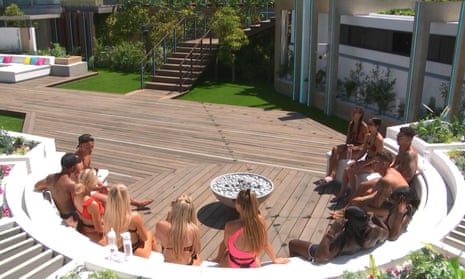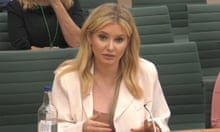Love Island has netted ITV more than £12m in revenues even before the first episode of the new series of the hit reality show airs on Monday, as sponsors and advertisers rush to attach themselves to the most commercialised show on British television.
With uncertainty over Covid restrictions scuppering holidays abroad for a second successive year, the arrival of the feelgood summer juggernaut could not be more perfectly timed to tap into a viewer and advertising boom.
Some brands have hung back, concerned about the mental health issues associated with the programme. Two former contestants have taken their own lives, as did the show’s longtime host Caroline Flack last year. ITV put out the latest update of its duty of care protocols last week, which detail how contestants are prepared, looked after during filming and given “aftercare” to deal with a new celebrity lifestyle when the season finishes.
With the first episode only days away, however, it is clear that many advertisers are still prepared to place large bets on an association with the show. Love Island has signed up nine official partners, more than any other ITV show, and media agency sources say they have stumped up a collective £12m-plus, setting a record.
ITV started selling its sponsorship packages during lockdown in the first quarter of the year, before the government announced its roadmap to ending Covid restrictions, and when it wasn’t even clear if the show could be filmed as usual in the Balearic islands.
“We sold out,” said Kelly Williams, the managing director of commercial at ITV. “That demonstrates the demand. Our revenues for June are going to be the biggest in our history, and I suspect July will be the same. Not just the biggest in our history, but the biggest by quite some margin. Some of it is our Euro 2020 coverage, yes, but advertisers have definitely learned through the pandemic the value of TV.”
ITV, in turn, has learned that if they want it, you can charge for it and Love Island has spawned a sponsor for everyone. Tinder, on board as the first dating partner, has developed a Love Island experience in-app, Boots is the series’ “feelgood” partner and Cloud Nine is the official hair partner. JD Sports is providing fitness and activewear and gym equipment for the island villa, the series’ drinks partner WKD will feature Love Island branding on packs of bottles, and Spotify will be behind the official Love Island playlist and sponsor the housemates’ parties.
This article includes content provided by Instagram. We ask for your permission before anything is loaded, as they may be using cookies and other technologies. To view this content, click 'Allow and continue'.
ITV believes the 18-month break between flagship summer series enforced by Covid has served to fuel a huge pent-up demand among audiences. The average audience hit 5.9 million in the last series in 2019, comprised mostly of the 18- to 34-year-old demographic, which makes it advertiser gold. With equally sky-high expectations for audiences this year, ITV is asking for an eye-watering £100,000 for a single 30-second TV ad.
“It’s pretty punchy prices they are asking for,” said Fleur Stoppani, the managing director of the media agency Mindshare UK, which counts the former Love Island sponsor Superdrug among its clients. “Lots of brands are in recovery mode trying to recoup the hard times of Covid, and lots of brands are putting their money into TV to do it. Whatever the audience numbers, Love Island is still going to be the best show to be targeting youth.”
Love Island may charge a premium for brands to come on board but an association with the show can be transformative. The online retailer I Saw It First, which is returning as official fashion partner, credits the programme for its runaway success.
In its first year as a partner in the summer of 2019, when the contestant Molly-Mae Hague wore a custom-made yellow dress, it sold out in 10 minutes. “It was insane,” said Bryony Frith, the partnership manager at I Saw It First. The firm’s sales rose 67% during the time the show aired. “The partnership was so important for our brand awareness as such as a new company, we are just four years old, it really put us on the map. What we have achieved in that time is incredible really. We owe Love Island a lot.”
In the UK and Ireland, Samaritans can be contacted on 116 123 or email jo@samaritans.org or jo@samaritans.ie. In the US, the National Suicide Prevention Lifeline is 1-800-273-8255. In Australia, the crisis support service Lifeline is 13 11 14. Other international helplines can be found at www.befrienders.org.









